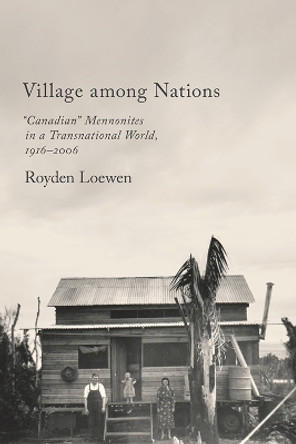Description
A comparative global history of Mennonites from the ground up.
Winner of the Dale W. Brown Book Award for Outstanding Scholarship in Anabaptist and Pietist Studies, Shortlisted for the Wallace K. Ferguson Prize by the Canadian Historical Association, Nominee of the Margaret McWilliams Award by the Manitoba Historical Society
Mennonite farmers can be found in dozens of countries spanning five continents. In this comparative world-scale environmental history, Royden Loewen draws on a multi-year study of seven geographically distinctive Anabaptist communities around the world, focusing on Mennonite farmers in Bolivia, Canada, Indonesia, the Netherlands, Russia, the United States, and Zimbabwe. These farmers, who include Amish, Brethren in Christ, and Siberian Baptists, till the land in starkly distinctive climates. They absorb very disparate societal lessons while being shaped by particular faith outlooks, historical memory, and the natural environment.
The book reveals the ways in which modern-day Mennonite farmers have adjusted to diverse temperatures, precipitation, soil types, and relative degrees of climate change. These farmers have faced broad global forces of modernization during the twentieth and early twenty-first centuries, from commodity markets and intrusive governments to technologies marked increasingly by the mechanical, chemical, and genetic. Based on more than 150 interviews and close textual analysis of memoirs, newspapers, and sermons, the narrative follows, among others, Zandile Nyandeni of Matopo as she hoes the spring-fed soils of Matabeleland's semi-arid savannah; Vladimir Friesen of Apollonovka, Siberia, who no longer heeds the dictates of industrial time of the Soviet-era state farm; and Abram Enns of Riva Palacio, Bolivia, who tells how he, a horse-and-buggy traditionalist, hired bulldozers to clear-cut a farm in the eastern lowland forests to grow soybeans, initially leading to dust bowl conditions.
As Mennonites, Loewen writes, these farmers were raised with knowledge of the historic Anabaptist teachings on community, simplicity, and peace that stood alongside ideas on place and sustainability. Nonetheless, conditioned by gender, class, ethnicity, race, and local values, they put their agricultural ideas into practice in remarkably diverse ways. Mennonite Farmers is a pioneering work that brings faith into conversation with the land in distinctive ways.
A comparative global history of Mennonites from the ground up.
About the Author
Royden Loewen is a senior scholar at the University of Winnipeg. His books include Horse-and-Buggy Genius: Listening to Mennonites Contest the Modern World and Village among Nations: "Canadian" Mennonites in a Transnational World, 1916-2006.
Reviews
An accessible entry point for readers interested in learning about places other than their own, as well as the interplays between natural resources and human cultivation.
-Dr. Rachel Waltner Goossen, Washburn Univerity, Anabaptist World
Awards
Short-listed for Canadian Historical Association Wallace K. Ferguson Prize 2022 (Canada) and Margaret McWilliams Award 2021 (United States).
Book Information
ISBN 9781421442037
Author Royden Loewen
Format Paperback
Page Count 352
Imprint Johns Hopkins University Press
Publisher Johns Hopkins University Press
Weight(grams) 499g
Dimensions(mm) 229mm * 152mm * 23mm








